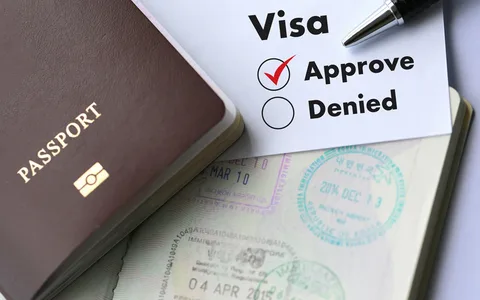Turkey, a nation celebrated for its historical grandeur, vibrant cultural tapestry, and breathtaking natural landscapes, continues to be a magnet for travelers worldwide.1 Whether your visit is for leisure or professional endeavors, understanding the specific visa requirements is the crucial first step. This article provides a focused guide on the Turkey Business Visa and a comprehensive Turkey Tourist Visa Guide, detailing their distinct application processes and essential considerations.
Navigating the Turkey Business Visa: For Professional Engagements
The Turkey Business Visa is specifically designed for individuals traveling to Turkey for commercial or professional purposes, but without the intention of working for a Turkish entity. This visa facilitates activities such as:
- Attending business meetings, negotiations, or client consultations.2
- Participating in conferences, seminars, trade fairs, or exhibitions.3
- Conducting site visits to potential investments or existing company branches.4
- Undergoing or providing short-term training invited by a Turkish company.
Key Distinction: Business vs. Work Visa: It is crucial to understand that a Turkey Business Visa does not permit employment in Turkey. If your intention is to work for a Turkish employer, you will need to apply for a separate Work Visa, which involves a more complex process and often requires a job offer and a work permit from the Turkish Ministry of Labor and Social Security.5
Application Pathways for a Turkey Business Visa:
The application method primarily depends on your nationality. Many nationalities are eligible for an e-Visa, while others require a traditional sticker visa.
1. Turkey Business e-Visa (for eligible nationalities):
For citizens of eligible countries, a business e-Visa offers a convenient online application.6 The process is similar to the tourist e-Visa, but the purpose of travel declared is “Business.”
- Eligibility: Citizens from countries like Australia, Canada, China, and various European nations are typically eligible for a business e-Visa.7 For some nationalities (e.g., India, Pakistan, Philippines, Nepal), a conditional business e-Visa applies, requiring them to hold a valid (by date) visa or residence permit from a Schengen country, the USA, UK, or Ireland at the time of entry.8
- Validity and Stay: A business e-Visa usually grants a single or multiple entry for a maximum stay of 30 or 90 days within a 180-day validity period, depending on nationality.
- Application Process:
- Visit the official Turkish e-Visa website: www.evisa.gov.tr.
- Select “Business” as your purpose of visit.
- Fill out the application form with accurate personal, passport, and travel details.
- Upload required documents, including a clear scanned copy of your passport’s biographical page and a recent digital passport-sized photo.9 If applicable, provide details of your valid supporting visa/residence permit.
- Pay the non-refundable visa fee online using a credit/debit card.10
- Receive your e-Visa via email upon approval. Print it and carry it along with your passport.
2. Traditional (Sticker) Business Visa:
If your nationality is not eligible for a business e-Visa, or you do not meet the conditional e-Visa requirements, you must apply for a traditional sticker visa through a Turkish Embassy or Consulate in your country of residence, or their authorized visa application center.11
- Key Documents for a Traditional Business Visa:
- Duly filled and signed visa application form.
- Original Passport: Valid for at least 6 months beyond your intended departure from Turkey, with at least two blank pages. Previous passports may also be required.
- Biometric Photographs: Two recent, passport-sized photos (typically 50x60mm, white background).
- Invitation Letter: A crucial document. This letter from the inviting Turkish company/organization must be on company letterhead, clearly state the purpose and duration of your visit, specify the inviting company’s full details (including Tax Registration Certificate), and often explicitly state that the Turkish company will cover accommodation and other expenses (or acknowledge your self-sponsorship).12 It is often required to be notarized in Turkey.
- Cover Letter: From your company, explaining the purpose of your trip, your designation, and confirming your employment.
- Company Documents: Your company’s registration certificate, trade license, and recent bank statements.13
- Financial Proof: Personal bank statements (last 3-6 months), Income Tax Returns (ITRs), and salary slips.14
- Confirmed Flight Itinerary and Hotel Reservation.
- Travel Insurance: Mandatory, with at least €30,000 medical coverage.15
- No Objection Certificate (NOC) from your employer (if applicable).16
- Personal Appearance: Often required for biometric data collection and potentially an interview.
- Processing Time: Generally longer than e-Visas, ranging from 15 working days to several weeks or more, depending on the embassy’s workload and the need for internal approvals.
Your Comprehensive Turkey Tourist Visa Guide: Exploring for Leisure
The Turkey Tourist Visa is the most common visa type, designed for individuals visiting Turkey purely for leisure, sightseeing, casual visits to friends or relatives, or short-term recreational activities.
Application Pathways for a Turkey Tourist Visa:
Similar to the business visa, the application method depends on your nationality.
1. Turkey Tourist e-Visa (most common for eligible nationalities):
For citizens of a broad range of countries, the e-Visa system is the simplest and fastest way to obtain a tourist visa.
- Eligibility: Many nationalities are eligible for a direct tourist e-Visa (e.g., citizens of Australia, Canada, the USA, and most EU countries).17 For others (like India, Pakistan, Philippines, Nepal), it’s a conditional tourist e-Visa, requiring a valid (by date) visa or residence permit from a Schengen country, the USA, UK, or Ireland.
- Validity and Stay: Typically grants a single or multiple entry for a maximum stay of 30 or 90 days within a 180-day validity period.
- Application Process:
- Visit the official Turkish e-Visa website: www.evisa.gov.tr.
- Select “Tourism” as your purpose of visit.
- Fill out the application form with accurate personal, passport, and travel details.
- Upload required documents: scanned copy of your passport’s biographical page and a recent digital passport-sized photo. For conditional e-Visas, details of your valid supporting visa/residence permit.
- Pay the non-refundable visa fee online.
- Receive your e-Visa via email upon approval. Print it and carry it with your passport.
2. Traditional (Sticker) Tourist Visa:
If your nationality is not eligible for a tourist e-Visa, or you don’t meet the conditional e-Visa requirements, you will need to apply for a traditional sticker tourist visa at a Turkish Embassy or Consulate.
- Key Documents for a Traditional Tourist Visa:
- Duly filled and signed visa application form.
- Original Passport: Valid for at least 6 months beyond your intended departure from Turkey, with at least two blank pages.
- Biometric Photographs: Two recent, passport-sized photos (typically 50x60mm, white background).
- Cover Letter: Explaining the purpose of your tourist visit and your travel itinerary.
- Financial Proof: Personal bank statements (last 3-6 months, showing sufficient funds, generally equivalent to $50 per day of stay), ITRs, and salary slips.18
- Confirmed Flight Itinerary (Round-trip) and Hotel Reservation.19
- Travel Insurance: Mandatory, with at least €30,000 medical coverage.20
- No Objection Certificate (NOC) from employer/school (if applicable).21
- Proof of Civil Status: Marriage certificate, birth certificates (if traveling as a family).22
- Police Clearance Certificate (PCC): May be requested in some cases.
- Personal Appearance: Often required for biometric data and an interview.
- Processing Time: Generally 15-25 working days, but can vary.
General Important Considerations for Both Visa Types:
- Passport Validity: For both visa types, your passport must be valid for at least 6 months beyond your intended date of entry into Turkey and have at least two blank pages. Some nationalities may have specific extended validity requirements (e.g., 150 days beyond the e-Visa duration for 90-day visas).
- Official Websites Only: Always use the official Turkish e-Visa website (www.evisa.gov.tr) or the official website of the Turkish Embassy/Consulate in your country of residence for accurate information and application. Beware of fraudulent third-party websites.
- Accuracy is Paramount: Any discrepancies between your application information and your passport details can lead to delays or rejection.23
- Do Not Book Non-Refundable Travel: It is highly advisable to obtain your visa before purchasing non-refundable flight tickets or making non-cancellable hotel reservations, as visa processing times can vary and applications can be rejected.
- Proof of Accommodation and Funds: Always be prepared to show proof of confirmed accommodation and sufficient funds to cover your expenses during your stay.
- Travel Insurance: Mandatory for most visa applications. Ensure your policy covers medical emergencies and repatriation with adequate coverage.
By carefully following this Turkey Business Visa guide and the comprehensive Turkey Tourist Visa Guide, travelers can ensure a smooth and successful visa application process, paving the way for an enriching experience in Turkey.









